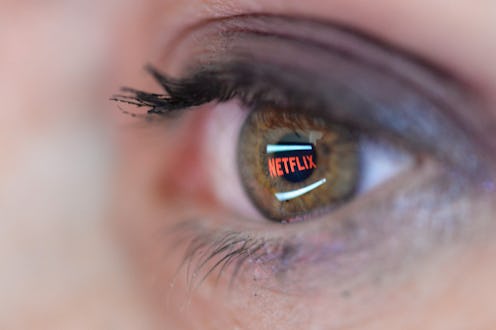Entertainment
This Is Your Brain on Netflix
You do it, I do it: We all occasionally binge on Netflix. In fact, Netflix accounts for 35 percent of Internet bandwidth during peak hours. (That certainly doesn't surprise me, given that Netflix causes 35 percent of my evening emotions.) Binge-watching is usually defined as viewing 2-3 episodes in a single sitting, but if you’re anything like me, you’re one of the people who’s gotten the “Are you still alive?” alert after hours of an epic TV marathon.
We tend to gravitate toward binge-watching when we experience more stress in our lives. And who wouldn’t want to escape after a grueling week of finals or a bad breakup? Guilty as charged: Right now, I’m plowing through Friday Night Lights in an attempt to avoid working on my dissertation.
But if you’re wondering why we crave fictional drama to replace the drama in our own lives, our brain chemistry has the answers. When you get home at the end of a crazy day or hang up the phone after an argument with your parents, whether you realize it or not, you still crave just the tiniest bit of stress. And what’s the perfect solution? Streaming television.
So in the spirit of moderation, here are a few things you should know about binge-watching, plus some tips on how to keep it at bay.
Addiction Is About the Anticipation, Not the Reward
Think about your favorite TV show: What are the moments where you feel the biggest high? Usually they’re the ones right before something happens that makes you hide your head in your sweatshirt or right before that big kiss. That’s because in our brains, the biggest bursts of that tasty little neurotransmitter known as dopamine occur before the reward. And this, of course, fuels us to keep watching. It’s why I felt as high as a kite right before I started a season finale of Lost.
It Takes More and More TV to Keep You Happy
When some people finish a great movie or an episode on Netflix, their dopamine levels drop back to normal. But for others, the reserves in their brain have lost count and dip just a tiny bit below normal. It’s not as intense as if you were addicted to a drug, but when you stop the behavior, you might even experience sadness or irritability. It’s what I like to call Post Series Finale Depression (PSFD). So what do you do? You watch even more episodes in a single sitting.
This happened when I started marathoning Breaking Bad on Netflix. At first, I found that I could only watch around three episodes at a time. “Too much manpain all at once,” I explained to a friend. But as my tolerance for dude crises increased, so did my ability to watch six or seven episodes at a time. Some might blame laziness to stop the autoplay feature, but it’s actually brain chemistry at work.
Our Personality Influences Our Viewing Habits
Past experiences and environments and even our time in the womb influence how much of an addictive personality you have. And if you’re a fangirl like me, you have to be hyperaware of how quickly admiration can morph into obsession. But the immediate anxiety of day-to-day life also plays a role.
Scientists know this because if you take a rat and stress him out before you give him a giant bowl of cocaine, then he’s going to want a hell of a lot more of it than the rat who’s had a leisure-filled day. Short-term stressors, like a cranky boss or a bad grade, create increases in dopamine, and the TV marathoning releases them in huge amounts.
How to Get a Handle on Your TV Viewing
Ninety percent of preventing yourself from being sucked into a cycle of binge-watching is simply paying attention to your habits. If you’ve had a crappy day, then by all means watch some TV. You deserve nice things! But consider some of these tips to break up your marathoning:
- Set an alarm for when you want to stop watching. That way you won’t fall into the “just one more episode” lie we often tell ourselves.
- Go for a walk or chat with a friend in between episodes. Don’t make fictional people solely responsible for calming you down. They have enough problems of their own.
- Actually pay attention to plot. If I’m watching Friday Night Lights, then maybe I’ll take the words from an epic Coach Taylor half-time speech to motivate me to stop procrastinating.
- Earn your next episode. If you feel like you will die if you don’t see the next episode of The Walking Dead , then think of an incentive for yourself, like finishing your laundry or calling your grandmother. You’ll feel proud of your accomplishments and won’t turn into a TV zombie by the end of the night.
For better or worse, binge-watching is one way our brain now responds to anxiety. Does that mean you should cancel your accounts? Absolutely not. The trick is to introduce as many other alternatives to dealing with stress as the ones we choose through television. Because whatever happens, that next episode will still be there tomorrow.
Images: Giphy (4)
